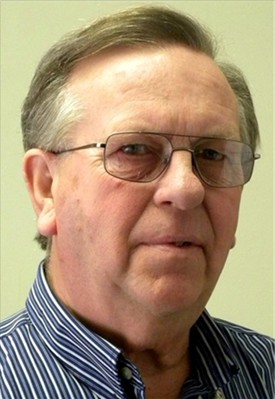Disaster Prep For The Rest Of Us
by Dave Robinson

Dave’s 10 Principles of Disaster Preparedness Part 3
Originally published May 14, 2013
This is third in a series on my Principles of Disaster Preparedness. I believe your preparations should be guided by certain principles that provide boundaries and direct your plans. Growing your pantry and gaining supplies is all good, but without definable, workable parameters, your efforts may be for naught. If you missed the last two weeks, check out my blog for the installments you missed.
Principle #7. Develop useful skills. Learn to cook without relying on prepared, pre-packaged, “high in everything that’s bad for you” fare. Practice getting by without a daily trip to the grocery store. Learn to fix things without calling a professional or buying new. I remember my dad building the most ingenious gate latches or other gizmo out of what he had on hand. The lessons learned in the Great Depression years stayed with him all his life. The “make do” philosophy has served our family well.
Principle #8. Get first aid training. Similar to #7 above, but so vital, it deserves its own category. Take a class in first aid. Build skills that will be invaluable if there are injuries in your neighborhood. Put together a first aid kit that includes such things as a suture kit, (available online), blood pressure cuff, and inflatable splints. There are video classes at www.redcross.org to teach skills in cardio-pulmonary resuscitation (CPR). Learn about triage and why hard decisions have to be made in times of disaster. When the time comes, you will be an asset rather than a liability. YouTube videos are a great source of information. For example if you need to learn to use that suture kit, there are YouTube videos covering the topic. Also check out the Patriot Nurse, a straight-talking prepper who pulls no punches when it comes to medical readiness.
Principle #9. Build relationships with your neighbors. Mapping Your Neighborhood is a program which gets you acquainted with your REAL first responders. When disasters strike, the Police, Fire and Emergency Medical Responders are all going to have their hands full with someone else’s emergency. Having an inventory of your neighborhood skills is vitally important when it comes to response on a down home level. It is imperative you know who in your neighborhood may need your help and who has the skills to be of assistance. Are any of your neighbors elderly and may need assistance? How about propane tanks or natural gas shut-offs? All these questions are covered when neighbors get together and inventory their assets.
Principle #10. Spiritual preparedness. I may have saved the most important for last. Your core values and belief system will always be your first line of defense, and will be the first point of challenge in an emergency. How you are guided by your beliefs and values will dictate how well you respond and whether or not you will be successful. Time after time survivors interviewed after a disaster proclaim their strength to survive came from their faith.
Will you be a source of strength and stability for others or will you be yet another basket case demanding attention?
As always send your comments and questions to disasterprep.dave@gmail.com.
Note: Dave Robinson is Bandon's Postmaster and has worked for the postal service for 30 years. He has a background in law enforcement, served in the Air Force in Vietnam, worked nine years for the Coos County Sheriff's Department, and serves on the Myrtle Point School Board, where he lives.
additional columns by Dave Robinson

